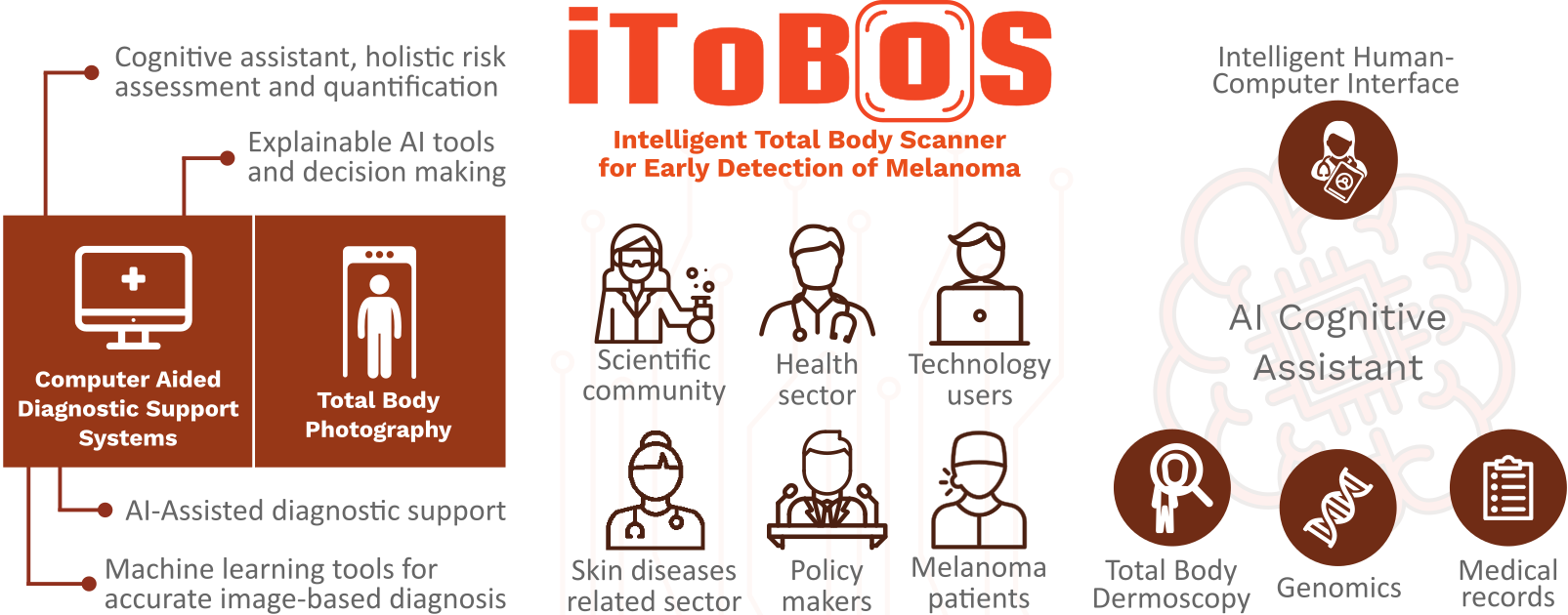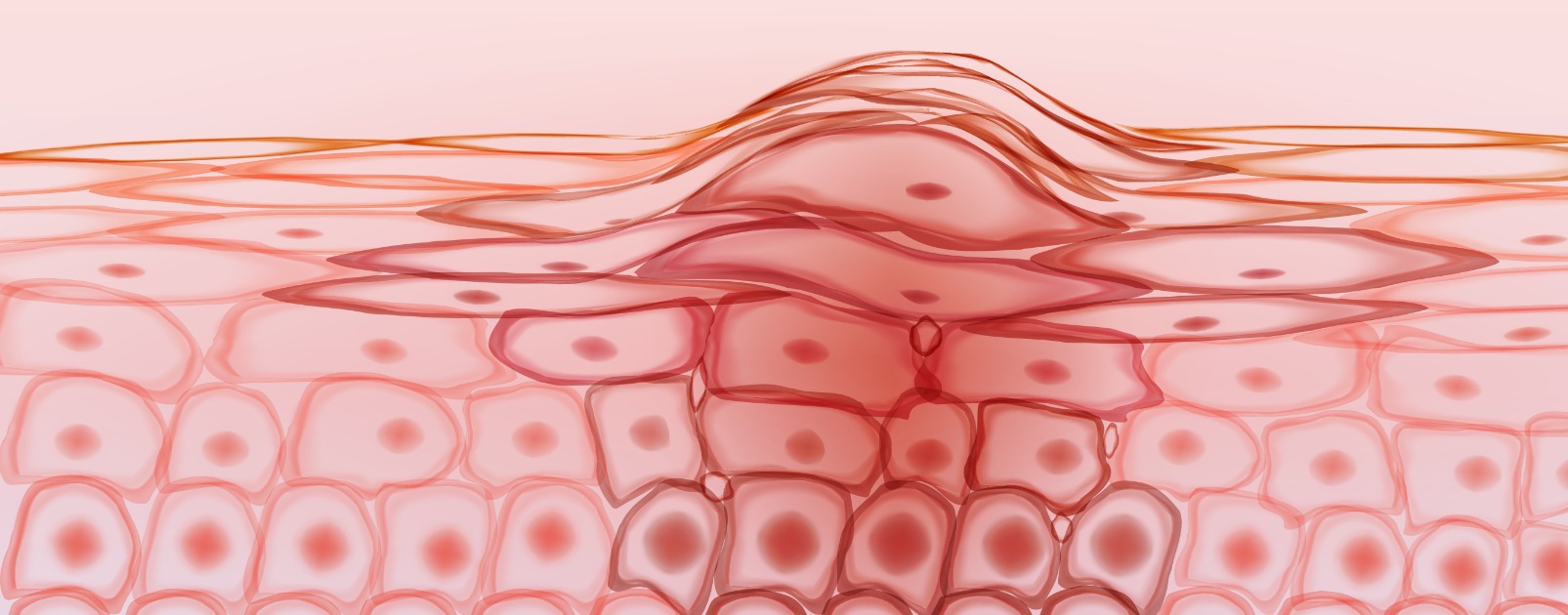Melanoma is one of the most aggressive cancers that can be discovered at an early stage, and it is responsible for 60% of lethal skin neoplasia. Its incidence has been constantly increasing and could become a public health challenge because of an increase in life expectancy of the elderly population. Total body skin examination, the primary screening mechanism for melanoma, checks each pigmented skin lesion individually in search of typical melanoma signs. This can be a time-consuming technique for patients with atypical mole syndrome or a large number of naevi.
iToBoS (Intelligent Total Body Scanner for Early Detection of Melanoma) project aims at developing an AI diagnostic platform for early detection of melanoma. The platform includes a novel total body scanner and a Computer Aided Diagnostics (CAD) tool to integrate various data sources such as medical records, genomics data and in vivo imaging.
This approach will lead to a highly patient-tailored, early diagnosis of melanoma. The project will develop and validate an AI cognitive assistant tool to empower healthcare practitioners, offering a risk assessment for every mole. Beyond integrating all available information about the patient to personalise the diagnostic, it will provide methods for visualising, explaining and interpreting AI models, thus overcoming the “black box” nature of current AI enabled CAD systems, and providing dermatologists with valuable information for their clinical practice.
The new total body scanner will be based on an existing prototype developed by 3 of the project partners but powered with high-resolution cameras equipped with liquid lenses. These novel lenses, based on two immiscible fluids of different refractive index, will allow achieving unprecedented image quality of the whole body. The integration of such images with all available patient data using machine learning will lead to a new dermoscopic diagnostic tool providing prompt, reliable and highly personalised diagnostics for optimal judgement in clinical practice.


